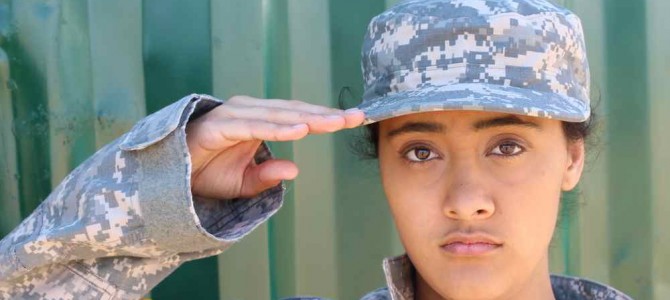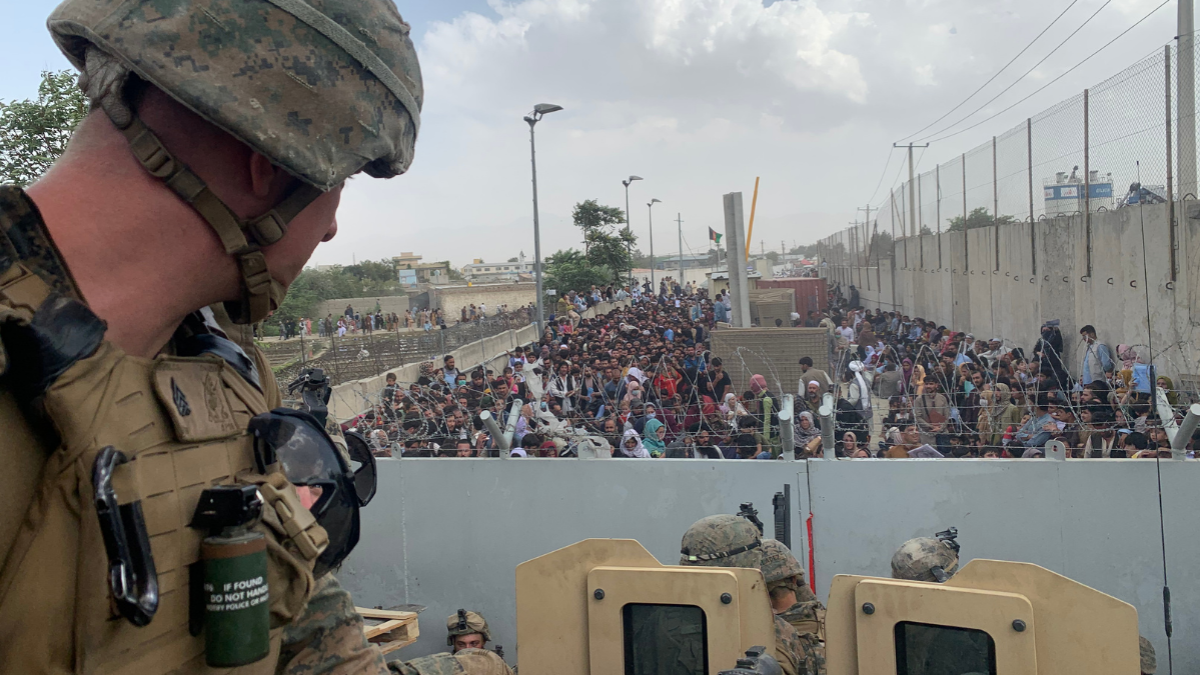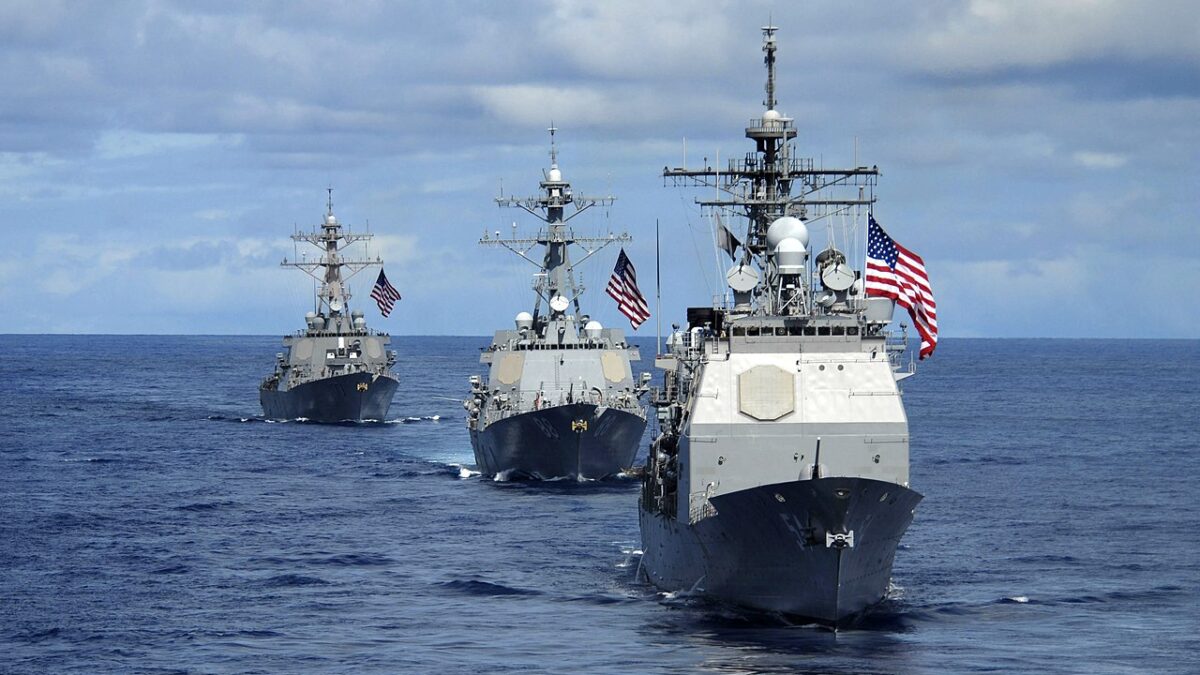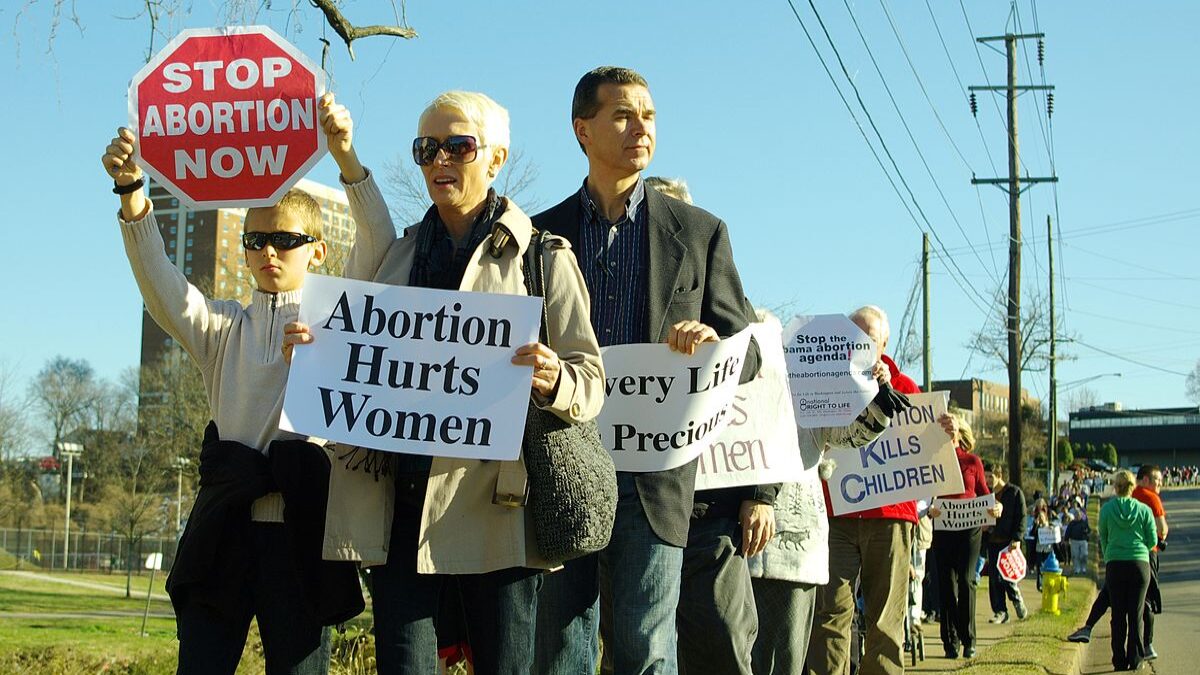
I’m facing down the imminent pains of childbirth in a matter of months, and no, being a mother is not more valiant, risky, or self-sacrificial than serving in combat.
In a recent article, Valerie Hudson claims women are “already drafted” into service for their country. While the military protects our present, it is women, she argues, who secure the future by providing the next generation. She goes so far as to say that “Women already sacrifice more for their country than men do.”
I am reticent to make such valuations of American men and women, or to pit the sexes against each other. Must we always have a debate over which sex is more important, more worthy of our respect? I refuse to equate the terrifying experiences, sacrifice, and heroism of Chris Kyle (the “American Sniper”) to the domestic service, however valuable, of Michelle Duggar. They are not comparable. Yet Hudson’s feminism drives her toward elevating motherhood in direct comparison to combat roles. In doing so, she reduces the richness and significance in the work of both sexes in both domestic and military service.
Men Raise the Next Generation, Too
In her piece, Hudson focuses strongly on childbirth, the one thing only women do. In this, she reduces motherhood to a single, painful “sacrifice,” thus pushing aside the critical nature of parenthood altogether. It takes two to create a child, and two to raise a child. It is not the burden, or indeed the privilege, of women alone to raise the next generation. The statistics on the effects of fatherlessness bear this out.
Many armed servicemen are fathers, and fathers have a sacrifice beyond those by men who serve in combat: they must leave behind their families and sacrifice time with their children and their fatherly duties. They must face down the prospect that they might never come home, or might suffer injury that prevents them from playing catch with their sons, carrying their children piggyback to bed, or dancing with their daughters on their wedding day.
Fathers matter. In a discussion of how “women are already drafted,” and the supposed “burden” of motherhood, it has to be said. Women should not and do not bear that responsibility alone.
Mothers Aren’t More Economically Disadvantaged
Yet in her mission to show how truly burdened mothers are, Hudson complains about the economic cost to being a mother, of a “mommy tax.” Yet by and large in our society, women choose to be mothers, or to engage in the one behavior that results in a baby. They make the choice to reduce their participation in the workforce or drop out altogether.
That of course affects long-term earning capacity, but people make tradeoffs to gain the most of what they want; mothers often trade career advancement for time with their children. Indeed, many consider it a privilege to stay home and have a household supported by the spouse’s single income. No one is taxing mothers for being mothers. Rather, the markets are responding to women’s choice of lower workforce participation.
Hudson’s economic complaint continues: “Remember, too, there’s a G.I. Bill for all the soldiers who volunteered to lay down their health and lives for their country, so soldiers are not asked to make both an economic and physical sacrifice for their country. There’s no such bill for mothers.” The G.I. bill is the least we can offer those who serve their country through military duty, opening up for years the possibility, or the reality, of deployment.
But she makes a glaring omission: the economic hardship that befalls many returning veterans. How many homeless vets have you met? The U.S. Department of Housing and Urban Development estimates 47,725 walk our streets. Almost 13,000 of those homeless vets served in Iraq or Afghanistan, according to a 2010 count—about 1 percent of the total troops deployed through 2010.
And how many women, proportionally, became homeless through motherhood? Just taking into account all homeless persons considered “in families” (data on homeless mothers or women alone was unavailable) this would constitute about 0.24 percent of all American mothers. Realistically, homeless mothers would constitute less than half that (0.12 percent).
Yes, Combat Is More Dangerous than Childbirth
So veterans are at least in one sense more economically disadvantaged than mothers. But Hudson also erroneously employs statistics to demonstrate that the greater risk to life and bodily injury for “securing the future of the country” lies with women. She writes, “Consider that combat deaths among U.S. troops in Afghanistan and Iraq total a little over 5,000 since 2001; in that same time period, at least 18,000 U.S. women died incident to providing a future for the nation these soldiers defended.”
That statement is deeply problematic, because Hudson didn’t adjust the ratios based on how many troops were deployed and how many women gave birth. So I did it for her with the data I could find for comparative analysis (between the years of 2002 and 2012). Approximately 1,425,200 troops were deployed to Afghanistan and Iraq, resulting in 6,773 total casualties (0.475 percent death rate) according to the Congressional Research Service. During the same time period, 45.2 million births occurred, resulting in approximately 6,005 maternal deaths calculated with the World Health Organization’s (WHO’s) maternal mortality rate and the Centers for Disease Control’s annual birth reports (a 0.013 percent death rate).
Hudson claims a maternal mortality rate (MMR) double that presented (28 deaths per 100,000 births) in WHO’s most recent annual report (2015), which lists total maternal deaths at 550, putting the mortality rate at 14. Aggregated data from the World Bank’s site (sourced from WHO) has the MMR unchanged at 14 for the past three years, making her estimate of 18,000 deaths hard to justify.
However, given my calculations, you would have been 37 times more likely to die in military service in Operation Iraqi Freedom and Operation Enduring Freedom than to die in childbirth during that time. Hudson’s mortality estimation would have yielded a 0.04 percent death rate, but that’s still 12 times smaller than the risk of dying in military service overseas. Also, the 0.475 percent isn’t adjusted to directly reflect your chance of dying in a combat capacity, so it is a more favorable comparison. The author does her country a great disservice to throw numbers at her readers that not only egregiously misrepresent the risk of death during childbirth, but grossly inflate it in comparison to the risk of death for our servicemen and -women.
We Appreciate Mothers Differently, Not Less
Of course mothers sacrifice for the next generation—in that I agree with Hudson completely. Our fierce instinct to protect and sacrifice for our families comes naturally, and is by nature, in a way, selfish. We protect those who belong to us, and it is good. Yet those who choose (and were chosen) to bear arms and go into battle protect us all—the faceless millions. They are driven not by familial instinct, but by national necessity, patriotism, or both.
Our memorials, tributes, and moments of silence for fallen soldiers aren’t about remembering “glorious” deaths. There is nothing glorious about war; it is cruel, harsh, and ugly. It steals the lives of the young. It robs limbs from many who return, and others of their sanity. We honor those who fight not because it is glorious, but because it serves something greater, the protection of millions of people they have no connection to beyond that of countrymen, and the defense of American ideals.
Ultimately, Hudson’s feminism betrays a sad and destructive mindset: that women (and women alone) are “burdened” with producing and raising the next generation, that men’s work is consistently glorified above women’s, and that “progress” is made by pitting dual aspects against each other: men against women, domestic against military, giving life, and taking it in our lives’ defense, actions that are in reality complementary.
A mother’s work is critical, in peacetime and war. She is honored daily in her service: she is loved by her children, drawn pictures to hang on the refrigerator, thanked deeply in their graduation speeches, appreciated by her spouse, grieved painfully when she passes. We have a day of the year set aside in her honor. She is privileged by the joys of motherhood, by watching her children grow and mature, the result of her devotion and edification. But a mother rarely falls homeless for becoming a mother, rarely gets PTSD from childbirth or raising children, and very infrequently loses her life for it.
While I ultimately agree with Hudson that women should not be drafted, comparing a mother’s value to the terrible sacrifices soldiers make amid the horror and ugliness of war is asinine. To insist that women are “already drafted” undervalues the sacrifice of military families and does little to honor motherhood in all its complementarity, sacrifice, joy, and beauty.









